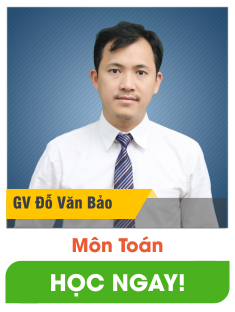Tiếng Anh 9 Unit 5 Language focus: Conditionals - wish1. Study sentences a-g and match them to the types of conditional 1-3. 2. Complete the table with the words in the box. 3. Study the examples of conditionals in the visitor’s guide. Choose the correct verb forms. 4. Study the examples and complete the rule. GÓP Ý HAY - NHẬN NGAY QUÀ CHẤT Gửi góp ý cho HocTot.Nam.Name.Vn và nhận về những phần quà hấp dẫn
Lựa chọn câu để xem lời giải nhanh hơn
Bài 1 1. Study sentences a-g and match them to the types of conditional 1-3. (Nghiên cứu các câu a-g và nối chúng với các loại câu điều kiện 1-3.) a. Sound doesn’t travel if there isn’t any air. (Âm thanh không thể truyền đi nếu không có không khí.) b. Diseases will become resistant to antibiotics if we aren’t careful. (Bệnh tật sẽ trở nên kháng thuốc kháng sinh nếu chúng ta không cẩn thận.) c. If it rains, we can stay at home. (Nếu trời mưa, chúng ta có thể ở nhà.) d. If she studies hard, she may pass the exam. (Nếu cô ấy học chăm chỉ, cô ấy có thể vượt qua kỳ thi.) e. If you don’t hurry, you might miss the last train. (Nếu bạn không nhanh lên, bạn có thể lỡ mất chuyễn xe lửa cuối cùng.) f. If I had more time, I could visit you. (Nếu tôi có nhiều thời gian hơn, tôi có thể đến thăm bạn.) g. If he were here, he would help us. (Nếu anh ấy ở đây, anh ấy sẽ giúp chúng ta.)
Lời giải chi tiết:
Bài 2 2. Complete the table with the words in the box. (Hoàn thành bảng sau với các từ cho trong khung.)
Lời giải chi tiết:
Bài 3 3. Study the examples of conditionals in the visitor’s guide. Choose the correct verb forms. (Nghiên cứu các ví dụ về câu điều kiện trong hướng dẫn dành cho khách tham quan. Chọn dạng động từ đúng.) EARTH – A VISITOR’S GUIDE - Welcome to Earth! We’re between the planets Venus and Mars. - To survive, humans need food and water – but if we (1) eat / eaten too much food, we become ill. - Most plants here need water, food and light. If you keep a plant in the dark, it (2) won’t / wouldn’t grow. - We love being outside in the sun, but if we don’t use special protection, our skin (3) burns / burnt! - We’re friendly, but people here can be selfish. If we (4) share / shared things more, it would be a better place. - There are a lot of us here. If our population (5) grows / grew more, we’ll need a new place to live. - A lot of other species are near extinction. If we don’t protect them, (6) they’ll / they’d be disappear. Lời giải chi tiết:
1. To survive, humans need food and water - but if we eat too much food, we become ill. (Để tồn tại, con người cần thức ăn và nước uống – nhưng nếu ăn quá nhiều thức ăn, chúng ta sẽ bị bệnh.) Giải thích: câu điều kiện loại 0: If + S + V_(s/es), S + V_(s/es) 2. Most plants here need water, food and light. If you keep a plant in the dark, it won’t grow. (Hầu hết cây trồng ở đây đều cần nước, chất dinh dưỡng và ánh sáng. Nếu bạn để cây trong bóng tối, nó sẽ không phát triển được.) Giải thích: câu điều kiện loại 1: If + S + V_(s/es), S + will + V nguyên thể 3. We love being outside in the sun, but if we don’t use special protection, our skin burns! (Chúng ta thích ở ngoài nắng, nhưng nếu không sử dụng biện pháp bảo vệ đặc biệt, da chúng ta sẽ bị bỏng!) Giải thích: câu điều kiện loại 0: If + S + V_(s/es), S + V_(s/es) 4. We’re friendly, but people here can be selfish. If we shared things more, it would be a better place. (Chúng ta thân thiện nhưng mọi người ở đây có thể ích kỷ. Nếu chúng ta chia sẻ mọi thứ nhiều hơn thì đây sẽ là một nơi tốt hơn.) Giải thích: câu điều kiện loại 2: If + S + V_ed, S + would + V nguyên thể 5. There are a lot of us here. If our population grows more, we’ll need a new place to live. (Có rất nhiều người trong chúng ta ở đây. Nếu dân số của chúng ta tăng thêm, chúng ta sẽ cần một nơi mới để sinh sống.) Giải thích: câu điều kiện loại 1: If + S + V_(s/es), S + will + V nguyên thể 6. A lot of other species are near extinction. If we don’t protect them, they’ll be disappear. (Rất nhiều loài khác sắp tuyệt chủng. Nếu chúng ta không bảo vệ chúng sẽ biến mất.) Giải thích: câu điều kiện loại 1: If + S + V_(s/es), S + will + V nguyên thể Bài đọc hoàn chỉnh: EARTH – A VISITOR’S GUIDE (Trái Đất – Hướng dẫn dành cho khách tham quan) - Welcome to Earth! We’re between the planets Venus and Mars. (Chào mừng đến trái đất! Chúng ta đang ở giữa Sao Kim và Sao Hỏa.) - To survive, humans need food and water - but if we eat too much food, we become ill. (Để tồn tại, con người cần thức ăn và nước uống – nhưng nếu ăn quá nhiều thức ăn, chúng ta sẽ bị bệnh.) - Most plants here need water, food and light. If you keep a plant in the dark, it won’t grow. (Hầu hết cây trồng ở đây đều cần nước, chất dinh dưỡng và ánh sáng. Nếu bạn để cây trong bóng tối, nó sẽ không phát triển được.) - We love being outside in the sun, but if we don’t use special protection, our skin burns! (Chúng ta thích ở ngoài nắng, nhưng nếu không sử dụng biện pháp bảo vệ đặc biệt, da chúng ta sẽ bị bỏng!) - We’re friendly, but people here can be selfish. If we shared things more, it would be a better place. (Chúng ta thân thiện nhưng mọi người ở đây có thể ích kỷ. Nếu chúng ta chia sẻ mọi thứ nhiều hơn thì đây sẽ là một nơi tốt hơn.) - There are a lot of us here. If our population grows more, we’ll need a new place to live. (Có rất nhiều người trong chúng ta ở đây. Nếu dân số của chúng ta tăng thêm, chúng ta sẽ cần một nơi mới để sinh sống.) - A lot of other species are near extinction. If we don’t protect them, they’ll be disappear. (Rất nhiều loài khác sắp tuyệt chủng. Nếu chúng ta không bảo vệ chúng sẽ biến mất.) Bài 4 Wish (câu ước) 4. Study the examples and complete the rule. (Nghiên cứu các ví dụ và hoàn thành quy tắc.) 1. We wish that researchers found a way to prevent the use of deepfake technology for evil purposes soon. (Chúng tôi mong muốn các nhà nghiên cứu sớm tìm ra cách ngăn chặn việc sử dụng công nghệ deepfake vào mục đích xấu.) 2. They wish someone invented a machine to clean up ocean plastic. (Họ ước ai đó phát minh ra chiếc máy làm sạch nhựa khỏi đại dương.) 3. I wish we would invent cures for all types of cancer soon. (Tôi ước chúng ta sớm phát minh ra phương pháp chữa trị mọi loại ung thư.) 4. I wish she were able to afford an Al robot to do household chores. (Tôi ước gì cô ấy có đủ tiền mua một con robot Al để làm việc nhà.)
Lời giải chi tiết: We use the past tense to make wishes about a present situation which is not currently true or does not happen. (Chúng ta sử dụng thì quá khứ đơn để bày tỏ mong muốn về một tình huống hiện tại không đúng hoặc không xảy ra.) Bài 5 5. Rewrite the sentences. (Viết lại các câu.) 1. He wants to speak to aliens from space. (Anh ấy muốn nói chuyện với người ngoài hành tinh từ không gian.) He wishes _____________________________________________ 2. His English is not good enough to study space science. (Tiếng Anh của anh ấy không đủ tốt để nghiên cứu khoa học vũ trụ.) He wishes _____________________________________________ 3. They can’t afford explorations to discover new species. (Họ không có đủ khả năng để khám phá những loài mới.) They wish _____________________________________________ 4. She is not strong enough for the journey to Son Doong cave. (Cô ấy không đủ sức khoẻ cho chuyến hành trình vào hang Sơn Đoòng.) She wishes _____________________________________________ Lời giải chi tiết: 1. He wishes he could speak to aliens from space. (Anh ấy ước anh ấy có thể nói chuyện với người ngoài hành tinh từ không gian.) Giải thích: câu ước trái với hiện tại: S + wish(es) + S + V_ed/ tra cột 2 2. He wishes his English were good enough to study space science. (Anh ấy ước tiếng Anh của anh ấy đủ tốt để nghiên cứu khoa học vũ trụ.) Giải thích: câu ước trái với hiện tại: S + wish(es) + S + V_ed/ tra cột 2, dùng “were” cho các ngôi 3. They wish they could afford explorations to discover new species. (Họ ước họ có đủ khả năng để khám phá những loài mới.) Giải thích: câu ước trái với hiện tại: S + wish(es) + S + V_ed/ tra cột 2 4. She wishes she were strong enough for the journey to Son Doong cave. (Cô ấy ước cô ấy đủ sức khoẻ cho chuyến hành trình vào hang Sơn Đoòng.) Giải thích: câu ước trái với hiện tại: S + wish(es) + S + V_ed/ tra cột 2, dùng “were” cho các ngôi Bài 6 6. USE IT! Complete questions 1-6 with the correct verb forms. (Thực hành! Hoàn thành câu hỏi 1-6 với dạng động từ đúng.) 1. If you _____ (be) a millionaire, what would you do? 2. If you travelled to Mars, what things from Earth _____ (you / miss)? 3. If you could only take three species of animal to another planet, which _____ (you / save)? 4. If you travel in the future, where _____ (you / go)? 5. Do you wish you _____ (become) the best student in the school? 6. Do you wish you _____ (own) a car or rely on public transport? Lời giải chi tiết:
1. If you were a millionaire, what would you do? (Nếu bạn trở thành triệu phú, bạn sẽ làm gì?) Giải thích: câu điều kiện loại 2: If + S + V_ed, S + would + V nguyên thể 2. If you travelled to Mars, what things from Earth would you miss? (Nếu bạn du hành tới sao Hỏa, thứ gì từ Trái đất làm bạn nhớ?) Giải thích: câu điều kiện loại 2: If + S + V_ed, would + S + V nguyên thể? 3. If you could only take three species of animal to another planet, which would you save? (Nếu bạn chỉ có thể đưa ba loài động vật đến một hành tinh khác, loài nào bạn sẽ cứu?) Giải thích: câu điều kiện loại 2: If + S + V_ed, would + S + V nguyên thể? 4. If you travel in the future, where will you go? (Nếu bạn đi du lịch trong tương lai, bạn sẽ đi đâu?) Giải thích: câu điều kiện loại 1: If + S + V_(s/es), từ để hỏi + will + S + V nguyên thể? 5. Do you wish you became the best student in the school? (Bạn có ước mình trở thành học sinh giỏi nhất ở trường không?) Giải thích: câu ước trái với hiện tại: S + wish(es) + S + V_ed/ tra cột 2 6. Do you wish you owned a car or rely on public transport? (Bạn có ước mình sở hữu một chiếc ô tô hay sử dụng phương tiện giao thông công cộng?) Giải thích: câu ước trái với hiện tại: S + wish(es) + S + V_ed/ tra cột 2 Finished Work in pairs. Ask and answer the questions in exercises 6. (Làm việc theo cặp. Hỏi và trả lời các câu hỏi ở bài tập 6.) Lời giải chi tiết: 1. If I were a millionaire, I would invest, travel, and donate to charity. (Nếu tôi là triệu phú, tôi sẽ đầu tư, đi du lịch và quyên góp từ thiện.) 2. If I travelled to Mars, I would miss my family, friends, and nature. (Nếu tôi du hành tới sao Hỏa, tôi sẽ nhớ gia đình, bạn bè và thiên nhiên.) 3. If I could only take three species of animal to another planet, I would save bees, trees, and dogs. (Nếu tôi chỉ có thể đưa ba loài đến hành tinh khác, tôi sẽ mang ong, cây cối và chó.) 4. If I travel in the future, I will go to historical events or a future utopia. (Nếu tôi du hành đến tương lai, tôi sẽ đến những sự kiện lịch sử hoặc một tương lai không tưởng.) 5. Yes, I do. (Có) 6. I want to rely on public transport. (Tôi muốn dùng phương tiện giao thông công cộng.)
>> Học trực tuyến lớp 9 và Lộ trình UP10 trên Tuyensinh247.com Đầy đủ khoá học các bộ sách: Kết nối tri thức với cuộc sống; Chân trời sáng tạo; Cánh diều. Lộ trình học tập 3 giai đoạn: Học nền tảng lớp 9, Ôn thi vào lớp 10, Luyện Đề. Bứt phá điểm lớp 9, thi vào lớp 10 kết quả cao. Hoàn trả học phí nếu học không hiệu quả. PH/HS tham khảo chi tiết khoá học tại: Link
|





















